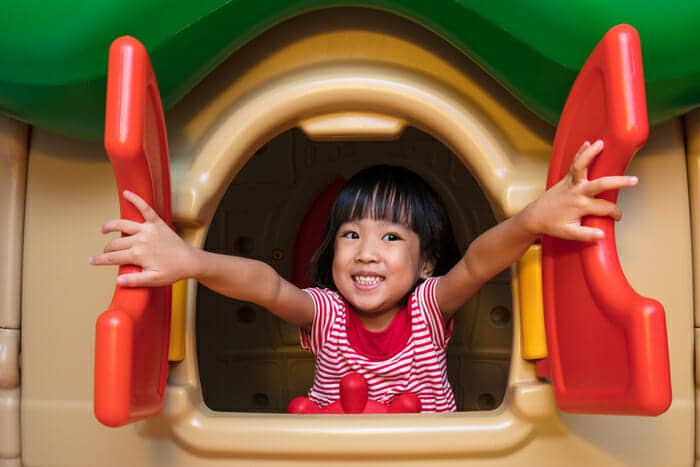Recent studies have shown that the proportion of time that North American children spend in free play has declined significantly over recent decades. Free play offers many benefits, however, which is why this trend concerns many working in child care.
Early childcare assistants know that free play can help young learners problem solve, gain a sense of independence, and much more. Here’s a closer look at why free play is so important.
What Is Free Play and What Are the Activities That Constitute It?
Free play time is best understood as being play time for a child that doesn’t involve any organized input or direction from an adult. It can be a group or individual activity, simply consisting of whatever playtime activity children feel like doing at that particular time.

Free play can include many different activities
Left to their own devices, children may opt to dance, draw, dress-up, play games like hide-and-seek, take part in informal ball games, or any number of other activities. Free play has been linked with building problem-solving skills, fostering independence, and stimulating emotional development as children deal with the varied ups and downs that free play brings. It also acts as a socializing activity, helping young children learn how to interact and get along.
Why Should Free Play Concern Those With Early Childcare Assistant Training?
Recent studies have shown that free play time for children in the US and Canada has been decreasing since the 1950s. Increased parental control over children’s time and the proliferation of organized sporting and after school activities has eroded the amount of time left for unstructured free play. This reduction in free play time has coincided with an increase in mental health problems among children, with some health professionals reporting that cases of anxiety are “soaring” among Canadian children.
This issue concerns many professionals with early childcare assistant training. Children attending preschool or childcare centres are at a crucial stage in their mental and emotional development. Authorities like the Public Health Agency of Canada have also stated that children should be physically active for at least one hour every day. The reduction of physical free play time means more children are not meeting this minimum threshold.
What Can Grads of ECA Courses Do to Encourage Free Play and Maximize Its Benefits?
Early childcare assistants know that striking the right balance in terms of directed activities and free play time is increasingly important. While graduates of ECA courses can only influence the routines of children while the children are in their care, they can make a positive impact by saving plenty of time for free play.
One misconception that professionals should seek to see past is that free play must be unsupervised. This is not the case. While early childcare assistants don’t structure free play activities, they still actively supervise kids to ensure safety. Supervisors can still give children the space and independence to choose their own activities. Directing children towards the most suitable physical space and allotting sufficient time for this unstructured play time will increase the benefits felt. A professional who works to facilitate free play time will allow children to consistently reap its benefits, while always reserving the option to intervene if necessary.
Do you want to become a childcare professional?
If so, contact Medix College to learn more about earning an early childcare assistant diploma.




